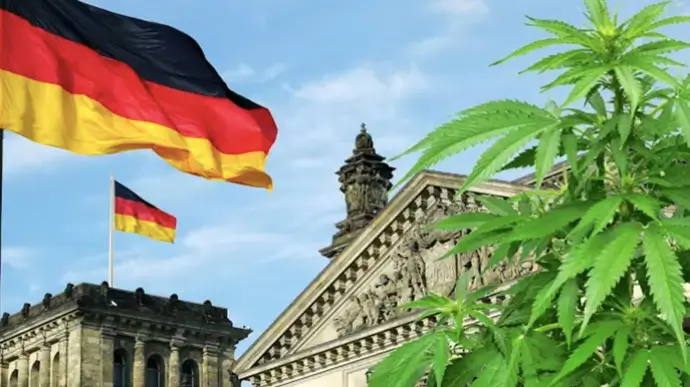On 1 April, the German Parliament took a historic step forward and on 1 April endowed the country with one of the most permissive marijuana laws in the entire EU, to the sound of controversy, furious criticism and deeply divided opinions.
“The law aims to help improve health protection, strengthen education and prevention, curb the illegal cannabis market and improve the protection of children and young people”. Karl Lauterbach, German Minister of Health”.
The Lower House of the German Parliament (Bundestag) approved on 23 February the legalisation of cannabis, specifically possession and consumption, the law that allows the possession of 25 grams in public places and 50 grams at home or in private places, as well as distribution and cultivation through non-commercial clubs, with some restrictions.
The law enters into force in a staggered manner. Thus, the regulation as a whole has started from 1 April 2024 and that which affects collective cultivation in associations will start to apply from 1 July 2024.
Clear limits to cannabis use:
- The change will allow home cultivation with up to three plants per household and the accumulation of a maximum of 50 grams.
- Possession of up to 25 grams is allowed in public places.
- Consumers must be over 18 years of age.
- Young people between 18 and 21 years of age will be allowed to consume and possess 30 grams.
- Clubs may not advertise or sponsor themselves.
- Smoking grass is not allowed in the clubs, only within a distance of 200 meters.
- Clubs must respect distribution ceilings: members may not receive more than 25 grams of marijuana per day and 50 grams per month.
- The THC (Tetrahydrocannabinol) content shall not exceed 10%.
- Smoking cannabis will be banned within a 100-metre radius of the entry points of schools, facilities for children and young people, playgrounds, publicly accessible sports facilities, and in pedestrian areas smoking will not be allowed until after 19:00 hours, according to EFE.
What the law legalising cannabis in Germany allows for?
Private cultivation. Non-profit cultivation associations will be allowed to cultivate cannabis and distribute it to their members for their own consumption.
“Social Clubs”. Cultivation associations may have a maximum of 500 members with a habitual place of residence or domicile in Germany and may cultivate cannabis collectively but not commercially and exchange it among their members for private consumption. In addition, only one cultivation association may be a member.
Associations may give their members a maximum of 25 grams per day or 50 grams per month and must be organised as cooperatives and require a permit.
How does cannabis legalisation benefit Germany?
A team of researchers led by Justus Haucap, professor of economics at the Heinrich Heine University in Düsseldorf, published a study that made the German finance minister, Christian Lindner, the leader of the liberal party and one of the initiators of the idea together with the Greens, happy.
The report stated that “Cannabis legalisation will bring the state 4.7 billion euros a year – and some 27,000 legal jobs would be created”.
A business worth millions
“A cannabis tax alone would provide the tax authorities with €1.8 billion per year. In addition, there is additional revenue from corporate, trade and sales taxes totalling around 735 million euros, 735 million, as well as increased revenue from social security contributions” the study states, which also predicts the creation of around 27,000 legal jobs.
Statista data show that in 2020, cannabis sales through illicit channels amounted to $13.1 billion.
We will soon inform you how the legalisation process is progressing – stay tuned!, but if you have any questions and would like some guidance, don’t hesitate to contact us, we are passionate about this topic!
